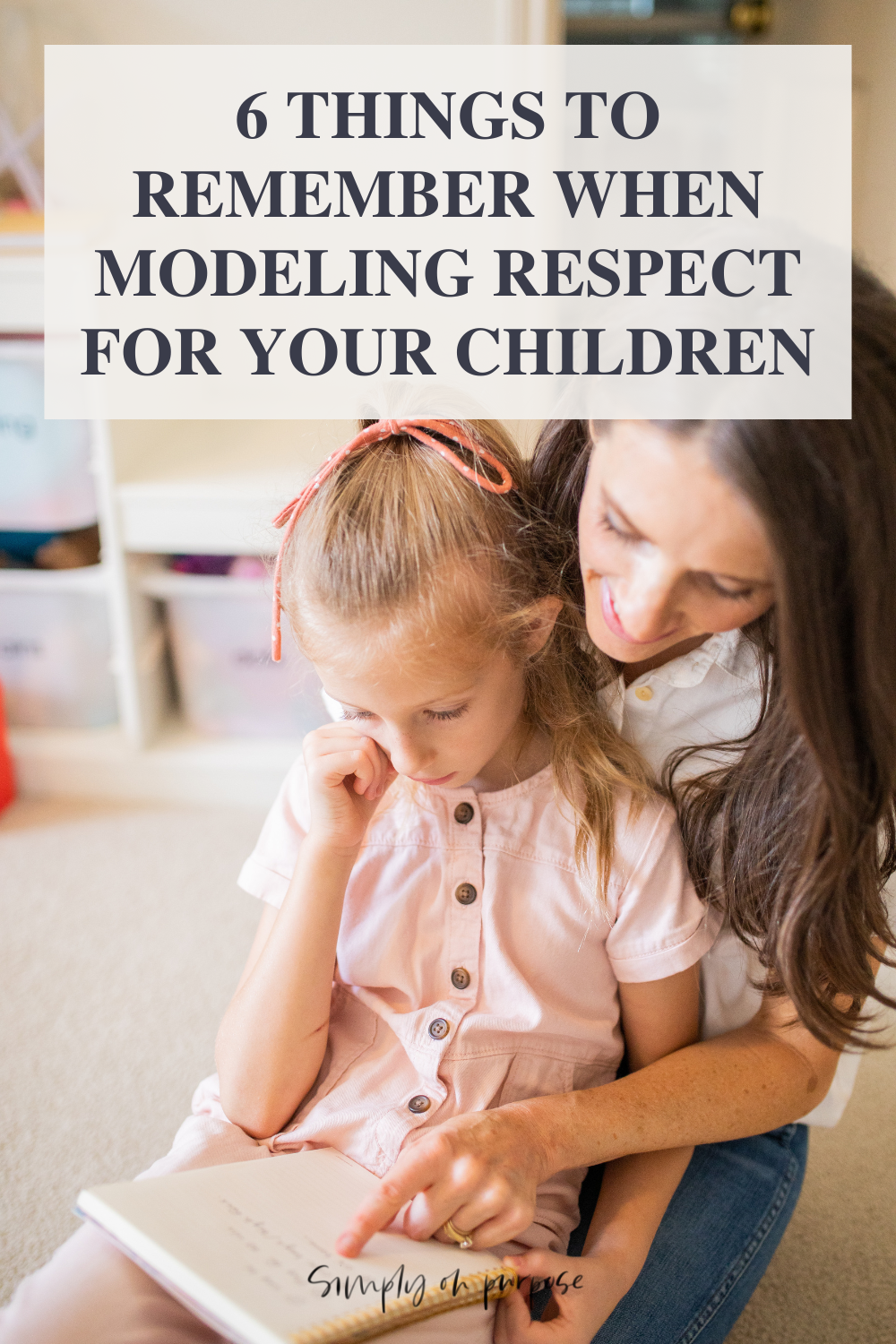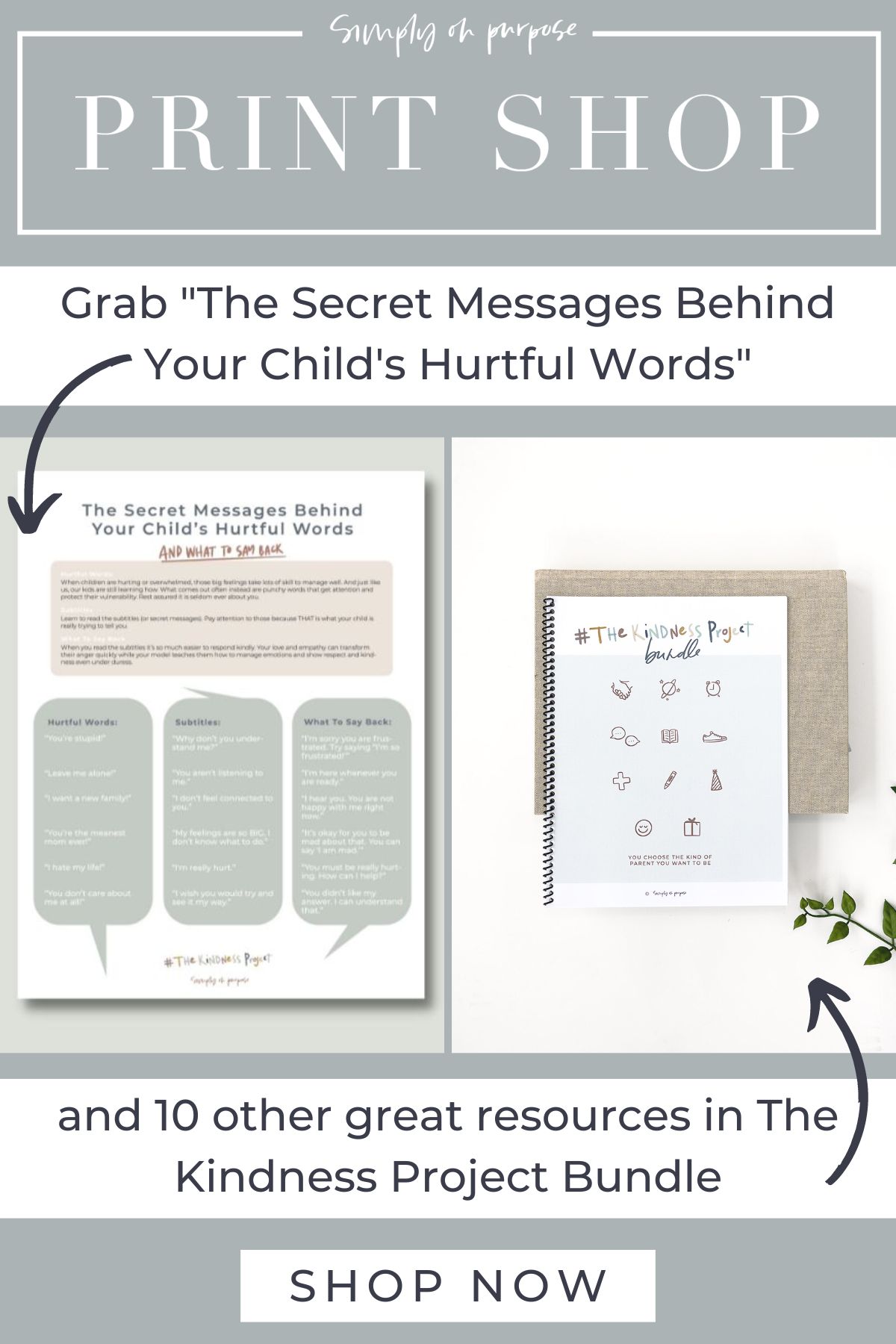Since actions speak louder than words, here are six things to remember when modeling respect for your children.
Let me guess, your child gets mad at you.
How do I know this?
Because your child is a human and getting mad is NORMAL.
Your kids have things that scare them, stress them out, and frustrate them- just like you!
When Your Child is Mad
But as a parent, what is our role when these big feelings are thrown at us?
Thankfully, we are not responsible for controlling our child’s anger (or any other emotion).
Instead, it is our responsibility to model how to appropriately manage that anger.
This is essential because how you respond to a behavior is FAR more important than the behavior itself.
So how you respond to your child slamming a door and yelling “leave me alone!” will teach them more than any consequence you can give.
Why?
Because kindness is learned.
Managing emotions is learned.
Respect is learned.
You are their most important teacher.
Modeling Respect for Your Children
If we want our children to act respectfully, there is no way around it. We have to act respectfully to them. And no amount of telling will ever work. We have to show respect.
No shallow words will compare to the way that we treat them.
Here are some ideas for how to model respect for your children:
1. Listen: Avoid interrupting or belittling what matters to them. They have great ideas and their world is just as valid as your own. Put your phone away, get down at their level, and make eye contact when they talk to you.
2. Respect their bodies: Ask if they want to be touched. Stop tickling or rough-housing when they say “stop.” Do not spank or hit them. No matter how “non-harmful” you tell yourself it is. You don’t get to decide if it causes harm or not by the way.
3. Talk respectfully: Always speak in a sincere tone of voice and avoid sarcasm or labeling. Remember to use your manners when asking them to do something. A “please” and “thank you” can go a long way. Never mock or make fun of them for the benefit of yourself or others.
4. Apologize: Admit when you have made a mistake and sincerely ask for forgiveness.
5. Ask for their opinion: This shows them that you respect their choices and their thinking process.
6. Respect their time: Make time for the things that matter to them, their desires and interests are just as important as yours. Take interest in their world. Give them time to finish what they are doing before you expect them to immediately comply with what you have asked.
What is Behind the Anger
Even when we are modeling respect and managing our own anger, some big feelings and harsh words might be thrown our way when our kids get mad.
Remember, being mad is normal, and saying things that mask vulnerability is normal too.
It is a skill to sift through the anger, eye-rolling, and backtalk and find out what our kids are really saying. And to see that they are really hurting.
Sometimes it feels impossible to put our own ego aside and instead seek to understand and connect. We have to sift through the loud, to find the true message underneath.
To help you “read the subtitles” of your child’s angry words, we have created this download to act as a guide! It gives examples of what your kids might really be saying behind their loud name-calling, and what you should say in return.
Want to learn more about managing your child’s anger? Check out these other free resources



